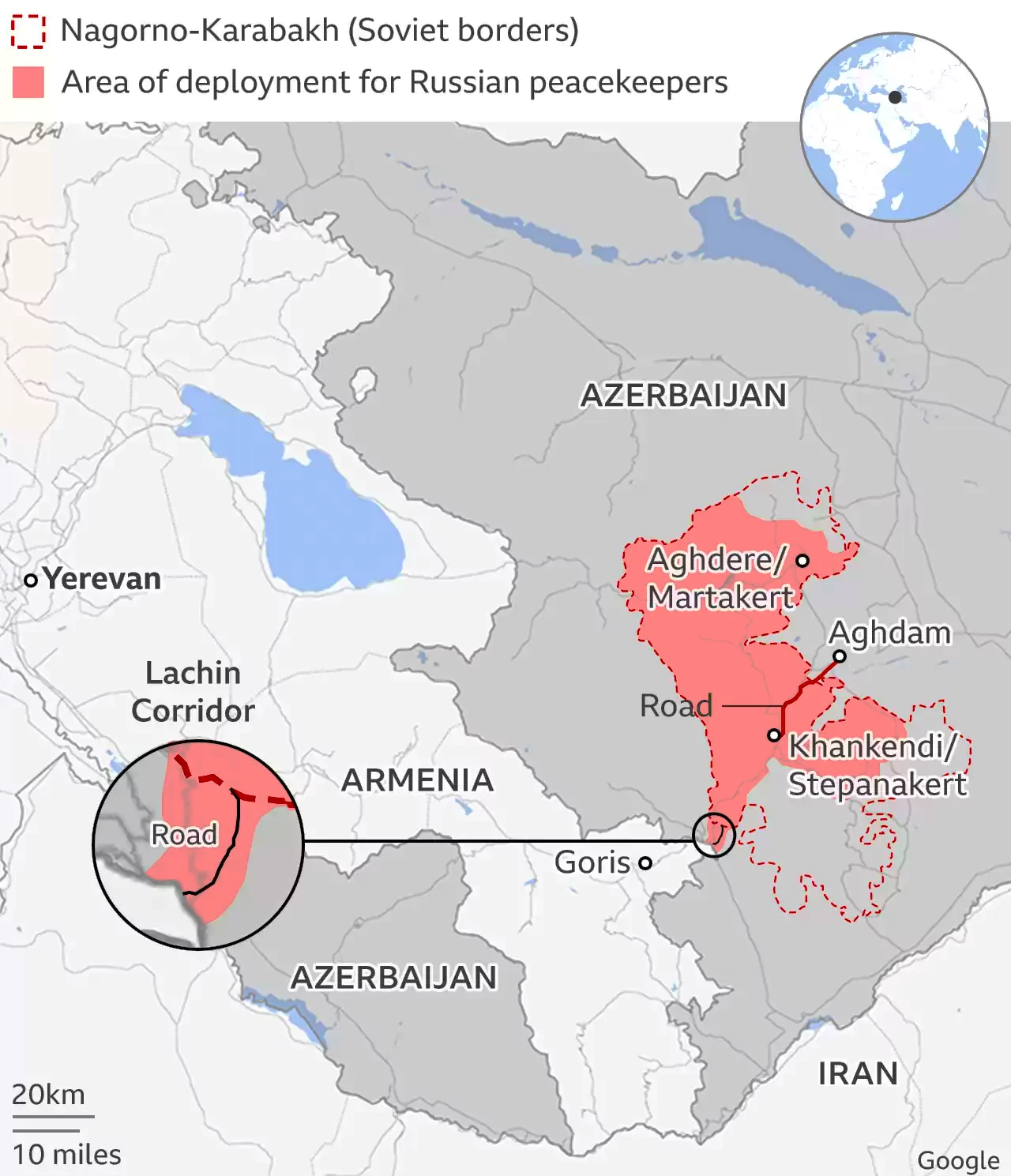Context
Recently, the Russian peacekeepers have begun withdrawing from Nagorno-Karabakh region.
Russian Peacekeepers Started withdrawal from Nagorno-Karabakh
Russian troops had begun leaving positions held as part of a Russia-brokered 2020 ceasefire between Baku (Capital of Azerbaijan) and Yerevan (Capital of Armenia).
- Russia had deployed a 2,000-strong peacekeeping force as part of a deal to end a bloody six-week offensive in 2020 that saw Azerbaijani forces seize regions of Nagorno-Karabakh and the surrounding areas.
- Last September, Baku took over the territory in a lightning one-day offensive that triggered a refugee crisis. Almost the entire local population of around 100,000 ethnic Armenians left for Armenia, fearing reprisals and repression.
Enroll now for UPSC Online Course
About Nagorno-Karabakh
Nagorno-Karabakh, known as Artsakh by Armenians, is a mountainous region at the southern end of the Karabakh mountain range, within Azerbaijan.

- Recognition: The territory is internationally recognised as part of Azerbaijan but was home to a majority Armenian population and controlled by pro-Yerevan separatists for nearly three decades.
- They have their own government which is close to Armenia but not officially recognised by Armenia or any other country.
- Significance: Several gas and oil pipelines across the Caucasus (the region between the Black Sea and the Caspian Sea) to Turkey and Europe are built by the energy-rich Azerbaijan.
About Collective Security Treaty Organization (CSTO)
It is an intergovernmental military alliance in Eurasia formed in 2002.
- Members: Total 6
- Russia, Armenia, Belarus, Kazakhstan, Kyrgyzstan, and Tajikistan.
- Uzbekistan joined in 2006 and then withdrew again in 2012.
- Objective: To strengthen regional and international security and to maintain peace including cybersecurity and stability of the member states.
- Legal Framework: It enacted the legal framework for Russian military bases in Kyrgyzstan and Tajikistan, allowed members to buy weapons at the Russian domestic rate, and pursued a common air defence system.
- Decision-making is greatly influenced by Russia.
- The organization features a rotating chairmanship and an interparliamentary assembly.
|
![]() 18 Apr 2024
18 Apr 2024
